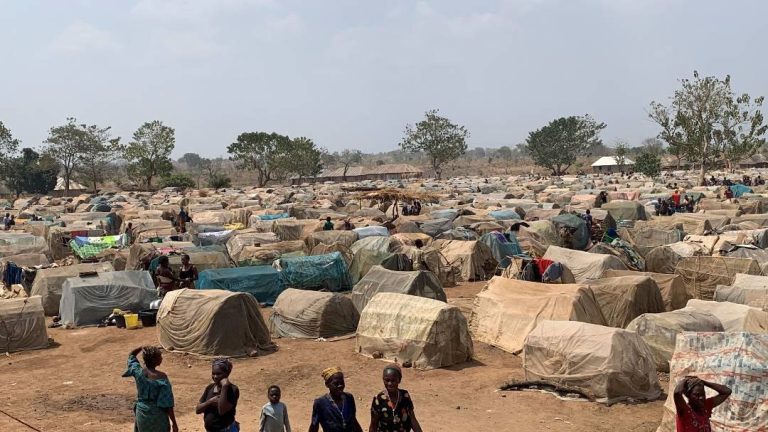NIGERIA: Why is the government letting people be killed?

A priest caring for IDPs in Nigeria’s Middle Belt – where more than 2 million have been driven out of their homes – has called on President Buhari’s government to act to stem the escalating crisis.
Father Remigius Ihyula told Catholic charity Aid to the Church in Need (ACN) that the national government is apparently ignoring those forced from their towns and villages by extremist members of the Fulani herder community.
Father Ihyula, who heads Makurdi Diocese’s Foundation for Justice, Development and Peace, said: “Our present leadership, it seems, neglects their plight, because these people don’t speak their language or worship like they do.
“It’s as if they are lesser human beings and so whatever happens to them is none of their concern.
“Show me any place on Earth where people are displaced in their thousands and their government or president doesn’t visit.
“Our people are butchered and slaughtered daily, and our president does not come to see them.”
ACN supports Makurdi Diocese’s aid for IDPs who fled extremist Fulani attacks in 14 displacement camps and an additional 13 host communities.
After decades of clashes between Fulani herders and farmers, the situation began to change in 2009 when targeted killings and mass displacements started.
Things further deteriorated in 2014 when the number of deaths jumped to almost 1,300. Between 2010 and 2013 only 80 people were killed.
Last year, 93 villages were attacked in Benue State alone resulting in the deaths of 325 farmers.
Father Ihyula said: “Some say their motive is religion, others say that they’ve come into the Benue Valley because of climate change.
“But it’s not because of climate change, because that is a factor all over, and people are not killing each other everywhere.
“Our interpretation is that there are terrorists who use these herdsmen to displace the local population.”
Father Ihyula highlighted that Benue State, which has been the epicentre of the violence, is called the “food basket of Nigeria” and the attacks were leading to widespread food insecurity as well as leaving farming families destitute.
He said: “And they are not only destroying crops and killing people, especially male children, but also occupying the land so that people cannot return to their farming communities, which has caused hunger and hardship.”
Father Ihyula oversees Church projects supporting families driven from their land, providing trauma counselling alongside pastoral care and humanitarian aid.
The priest said: “Some camp residents have suffered multiple displacements. Others have seen their loved ones slaughtered, shot at and butchered like animals.
“We have staff who give psycho-social counselling to address their trauma, and we also provide spiritual help because the Christian faith sometimes helps people heal better and faster.
“If not for the Christian Faith, I am sure that many people would have taken up arms to go back and fight.”
He added: “They need their faith, which is the most important support we can give them.”
The priest stressed that those who spoke out against the national government’s failure to address the problems in the Middle Belt risked reprisals.
Father Ihyula said: “If, by chance, our leaders read this interview, I will become a target.
“For them, I am the problem – not the president who has failed to do his duties, who has failed to protect his citizens, but me, for speaking the truth.
“In Nigeria, when people say injustice should be addressed, they become a target. I am a Catholic priest.
“If you kill me, you are killing one person. If you target me, you target one person. But I’m not going to live forever, anyway, and the truth should be told.
“The president has heard and seen a lot of news about Benue State, can he come here for once and see what is happening? Do our people deserve to be punished like this?”
Looking to the future he added: “We only pray that God gives us leaders who will not be biased and help those driven from their villages to go back and continue their lives.”
